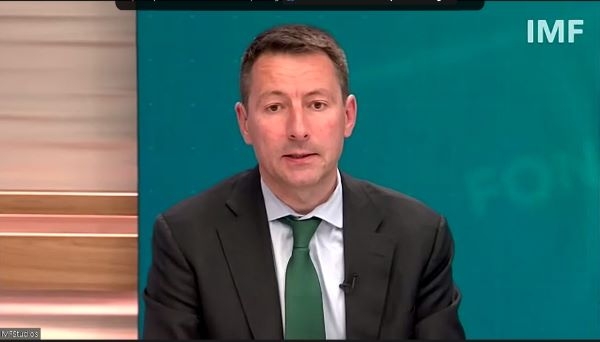IMF reaches staff-level agreement on third review of Ghana’s Economic Programme
 Stéphane Roudet
Stéphane Roudet
An International Monetary Fund (IMF) mission led by Stéphane Roudet, Mission Chief for Ghana, has reached a Staff-Level Agreement on the Third Review of Ghana’s Extended Credit Facility (ECF) programme.
The agreement follows a series of meetings held in Accra from September Tuesday, 24 to Friday, 4 October 2024, which focused on the country’s progress on reforms and policy priorities.
In a statement, Mr. Roudet announced: “The IMF staff and Ghanaian authorities have reached a staff-level agreement on the third review of Ghana’s economic programme under the Extended Credit Facility arrangement. This agreement is subject to IMF Management approval and Executive Board consideration.”
Upon approval, Ghana is expected to receive a disbursement of SDR 269.1 million (approximately USD360 million), bringing the total IMF financial support to SDR 1.441 billion (about USD1.92 billion) since May 2023.
The IMF praised Ghana’s performance under the programme, noting that all quantitative targets for the end of June 2024 were met. Mr. Roudet pointed out that key structural reforms had also progressed despite delays in some areas.
"Economic growth in the first half of 2024 was much higher than initially expected, driven by mining, construction, and information and communication activity," he stated.
However, he warned that recent drought conditions in the Northern regions could affect agricultural output and increase food prices in the latter half of the year.
To combat inflation, the IMF noted that the Bank of Ghana would maintain its tight monetary policy.
"Inflation has continued to decline, and the government’s policy response should help mitigate risks posed by the drought," Mr. Roudet noted.
On the fiscal side, Ghana’s performance has remained strong. The country is on track to achieve a primary surplus of 0.5 per cent of GDP, despite emerging spending pressures, particularly from the energy sector and the effects of the drought.
The IMF highlighted the importance of reforms to enhance sustainability in the energy sector and improve transparency. They also stressed the need to strengthen revenue collection and expenditure controls as the country approaches its December elections.
Another key focus of the discussions was Ghana's progress in debt restructuring. After restructuring domestic debt in 2023, the government successfully completed an agreement with the Official Creditors Committee under the G20 Common Framework in June.
Mr. Roudet stated: "The authorities are committed to pursuing good-faith efforts to reach an agreement with other commercial external creditors on a debt treatment consistent with programme parameters and the comparability of treatment principles."
The external sector showed significant improvement in 2024, driven by strong exports, particularly in gold and increased remittances.
International reserves have accumulated beyond program targets, and financial stability has been maintained. The IMF commended the government’s efforts to recapitalise banks and noted increased profitability in the banking sector.
The IMF team met with key stakeholders, including Finance Minister Dr. Mohammed Amin Adam, Bank of Ghana Governor Ernest Addison, and representatives from various government agencies.
Mr. Roudet expressed gratitude for the open and constructive engagement with Ghanaian authorities and other stakeholders during the mission.
Source: classfmonline.com/Elikem Adiku
Trending Business

SIC Managing Director James Agvenim-Boateng honoured by IBAG
05:34
IMF technical mission engages Ghana on implementing governance reforms
05:08
GoldBod Jewellery, GTA launches December homecoming promotion for diaspora visitors
17:15
Global cocoa prices soared, but Ghanaian farmers gained little – Randy Abbey
15:40
GIPC CEO joins Vice President to open new sanitary pad production line
09:23
New job creation is still not fast enough to absorb new entrants – Statistical Service
08:58
Employment up 330,000 by Q3 2025, unemployment averages 12.8% – GSS
06:57
GOLDBOD Jewellery unveils festive Christmas and New Year collections
18:17
Importers and Exporters Association kick against planned introduction of AI system at Ghana's ports
11:47
TDC unveils vision for Oxygen City development in Ho
09:59




